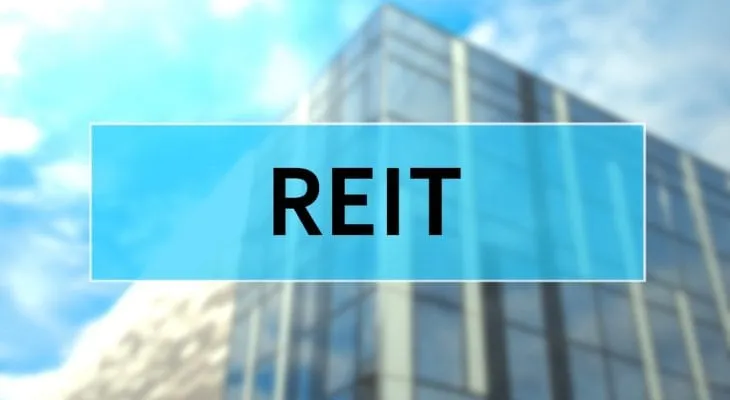Inefficient Work-From-Home Favors Office Real Estate Investment Trusts (REITs)
By: Bryan Perry,

URGENT WARNING: Do Not Fall for This Scam!
It has come to my attention that there is a scam artist out there who is using my name as a front to take people’s money. The scam tells people that they work for me and that I would be investing your money.
On top of that, they are asking people to send money to them using Bitcoin, (which really means that you cannot track who the payment is going to).
This is a scam, do not give them any of your money!
If you get approached by anyone, please let me know by sending an email to CustomerService@BryanPerryInvesting.com — that will help enable me to stop this scam artist from taking more people’s money.
Bryan
**************************************************
Just when most of the investing world was ready to adopt the notion that the cutting-edge work-from-home structure or professional project development could be accomplished effectively by remote production, the ground shifted.
Per a well-written Wall Street Journal article that drew a lot of attention, it is becoming rapidly clear that workers in complex roles within leading industries are indeed missing a beat in terms of execution, performance and job satisfaction. Initially, the pandemic sparked a massive readjustment of lifestyles for millions of employees who would head to lush corporate campuses loaded with a collegial office atmosphere, on-site workout facilities, healthy gourmet dining, coffee bars, walking and bike paths, medical specialists and pretty nice overnight digs when needed to complete projects ion on time and under budget.
Now, there’s daily input of all manner of noise from kids having to learn at home, dogs barking, landscape power tools, carpet cleaning, trucks, power washing trucks and all the other distractions of neighborhood life waging war on their work culture that for many is overwhelming the “gee, what a nice change” attitude to one of: I sure miss my life at the Apple or Microsoft campus.
A basic human instinct reasserting itself for many is that “productive people need co-workers” to interact with and not just virtually. Personally, I much prefer person-to-person interaction. Others are thrilled to spend the day in their sweat pants and a button-down shirt for the Zoom call. Different strokes for different folks, but more folks are missing a certain quality of lifestyle that the collective office experience presents.
What is quickly coming to the fore is that working remotely for numerous job roles and business models is what my millennial sons would describe as “not awesome”. My oldest works at pension manager TIA-CREFF in Denver and the other works at the Wasserman sports and talent agency in Los Angeles. Both are working 100% remotely, but would rather have the flexibility to work at the office or home — and this might be where the secular trend going forward lies.
The hiring process has become more complex, productivity gains have slowed and more employees are working out of routine. From the WSJ article Companies Start to Think Remote Work Isn’t So Great After All, July 24, 2020: “You can tell people are getting fatigued,” said Peter P. Kowalczuk, president of Canon Solutions America, a division of copier and camera giant Canon Inc., which employs about 15,000 people across the country.
Mr. Kowalczuk, who worked for months out of a bedroom in his home, went back to Canon’s U.S. headquarters in Melville, N.Y., in early July. Now, no more than 50% of the company’s employees are coming into work at the 52-acre office campus, which features two ponds and a walking trail, and typically includes more than 11,000 staffers in a single building. “We’re really a face-to-face business,” he said. “I don’t think offices are dead. The nature of what some companies do makes it tough, if not impossible, to function remotely.
In San Francisco, startup Chef Robotics recently missed a key product deadline by a month, hampered by the challenges of integrating and testing software and hardware with its engineers scattered across the Bay Area. Pre-pandemic, they all collaborated in one space. Problems that took an hour to solve in the office stretched out for a day when workers were remote, said Chief Executive Rajat Bhageria.
“That’s just a logistical nightmare,” Bhageria said. “We tried it. It’s just not the same. You just cannot get the same quality of work.”
At Stifel Financial Corp., which employs more than 8,000 people around the world, junior employees learn how to underwrite deals or develop pitch books by sitting beside more experienced colleagues and watching them work, said Chief Executive Officer Ronald J. Kruszewski. That’s hard to do remotely.
“I am concerned that we would somehow believe that we can basically take kids from college, put them in front of Zoom, and think that three years from now, they’ll be every bit as productive as they would have been had they had the personal interaction.”
Under the guise of this new and profound trend that has evolved for the so-called greater good, shares of blue-chip office real estate investment trusts (REITs) have been crushed as investors took the position that former Class A-rated office buildings and office parks in strategically-located areas would become ghost towns. Not so fast. I’m beginning to believe that when this pandemic has been arrested, workers will return to their former patterns much faster than the market currently projects.
Hence, the dislocation of the deeply discounted prices of stocks within the office REIT space presents the opportunity. One can find no less than 19 office REITs listed on the go-to www.reit.com website where the world of all REIT categories and their individual companies and stocks are shown.
A case in point of just how dysfunctional the pricing in this sector is: shares of Global Net Lease (GNL) pay a dividend yield of 9.96% fully covered by current funds from operations (FFO). Yet the company, which manages 288 triple net lease properties representing 34.2 million square feet from 126 tenants within 46 industries across nine countries, has collected 99% of on-time rents for June and is trading at a 25% discount to where the analyst community believes it is fairly valued.
GNL is a holding within my Cash Machine model portfolio. To learn more about Cash Machine and becoming a member, click here.
I won’t argue that the work-from-home trend is ideal for many. Heck, I’ve been working as a financial editor out of my home office for 15 years, but still frequent the publishing offices for work-related projects on a regular basis. For people like me, the mix of home and the corporate office atmosphere works well. But I’ll be the first to admit, more gets done in a shorter amount of time in the presence of other colleagues than being remote.
When looking at the charts of the office REITs, they aren’t pretty. They are down hard and moving laterally to the right just off their March lows for most of them. We’re talking 20-50% discounts to pre-pandemic levels. Picking the right ones involves some serious due diligence in terms of property location, the quality of tenants, the industries represented by those tenants, how leases are structured, debt on the books, etc.
But it’s worth the effort, because the dividend yields are pretty fat, between 3-10%, and the upside price potential for the underlying stocks coming out of the virus looks promising. Unless one has a spacious and well-designed office space at home with most of the modern office equipment features, comforts and is devoid of distractions — working remotely for a big percentage of the workforce isn’t all that it’s cracked up to be. Is it time for income investors to consider select blue-chip office REITs? I think so.
P.S. My publisher and I worked on a special presentation called The Great Dividend Disaster of 2020 which you can watch on the Global Financial Wealth TV network. Click here now to watch this presentation as well as other financial related shows.
Want more? Read our related articles:
The Ultimate Guide to Investing in REITs
Why Do REITs Have High Dividend Payout Ratios?
The 13 Types of REIT Stocks and How to Invest in Them
Investing in REITs: Pros and Cons
Dividend increases and dividend decreases, new dividend announcements, dividend suspensions and other dividend changes occur daily. To make sure you don’t miss any important announcements, sign up for our E-mail Alerts. Let us do the hard work of gathering the data and sending the relevant information directly to your inbox.








